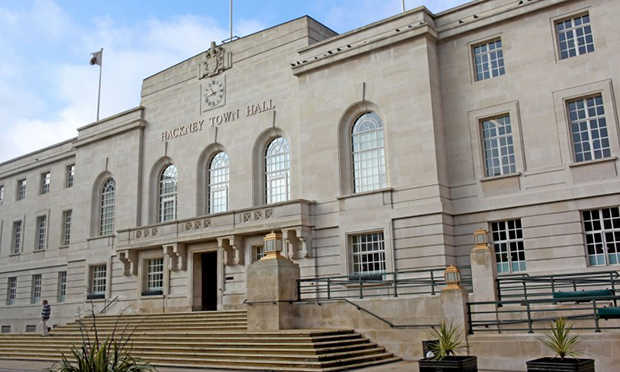‘One-stop shop’ of health services for young people to launch in Hackney

Hackney Town Hall
Hackney Council has revealed further details of a “super youth hub” designed to reduce health inequalities for young people.
The pilot project, aimed at 11- to 25-year-olds, will see Hackney, City, and child and adolescent mental health services (CAMHS) create a health and wellbeing network.
It is hoped that this integration of health and care services will help address the growing needs of young people, a scrutiny commission heard on Monday.
In Hackney and City, it is estimated that diagnosable mental health conditions in children and young people have increased from 10 per cent to 18 per cent, according to a background report for the new project.
The document states that the current system can treat around 40 per cent of those in need, meaning 60 per cent of children and young people in City and Hackney struggle with unmet mental health needs.
“In fact, the word ‘services’ is unknown to them and quite often they don’t know what that means,” senior programme manager Sophie McElroy told the commission.
“But they have told us that services are difficult to access and navigate, and we know that demand now outweighs the supply, particularly, and more so in recent years, around mental health.”
The two-year pilot is due to start this spring and it will run in London Fields, Shoreditch Park and the City.
It will create a “one-stop shop” for primary care, community and voluntary support, youth services, and mental health and public health services, including substance support and sexual health.
The project is inspired by the success of Tower Hamlets HealthSpot, which boasts two clinical consulting rooms, a roving GP on some days, a youth worker, and support services like counselling.
Working directly with young people is an “integral” part of the new hub, with a youth steering board and young advisor giving feedback, said children and young people’s emotional health and wellbeing partnership manager, Nancy Bending-Becket.
The pilot is expected to reduce health inequalities and improve the health and quality of life of children and young people.
Young Haredi people were identified as one of the communities affected by health inequalities, and previous council projects have offered them targeted support.
The pilot has secured around £319,000 in funding, which will be used to create three coordinator roles.
Green councillor Alastair Binnie-Lubbock said health services involved in the development of the super youth hub are under “significant financial pressure”.
“For example, Young Hackney, which is integral to the super youth hub project – the council proposed to reduce universal and targeted provision by 30 per cent over the next two years from the January cabinet report,” he noted.
He asked how the project would “plug the gap” between reduced funding while faced simultaneously with a “very high rate of sexually transmitted diseases”.
McElroy said: “The whole world is in a process of re-evaluating the resources they have and how we can continue to meet growing need.
“It’s a process that every service is going through at the moment, and of course Young Hackney is in the same situation.”
